By Rich Kozlovich
"Darwin’s theories are not, in the modern phrase, settled science.
They aren’t even unsettled science. They are educated guesses at best.
To be science, Wolfe reminds us, “There are five standard tests for a
scientific hypothesis. Has anyone observed the phenomenon — in this
case, Evolution — as it occurred and recorded it? Could other scientists
replicate it? Could any of them come up with a set of facts that, if
true, would contradict the theory? Could scientists make predictions
based on it? Did it illuminate hitherto unknown or baffling areas of
science? In the case of Evolution… well… no… no… no… no… and no.”' - Larry Thornberry on Tom Wolfe's, Kingdom of Speech
Between Thanksgiving and Christmas, its presumed our thoughts turn to
issues of faith, so for the last few years between Thanksgiving and
Christmas I have published this article, and will continue to do so most
years, with additions expanding on the logic and factual foundation. This may well be my last post on P&D, and I wanted it to be a good one. The links go back years and some of them no longer work, so you can accept what I'm presented as factual, or not, it's up to you.
One of the things that started this was an article I read where a
science commentator stated - with great confidence - the Theory of
Evolution was now bullet proof. Really? My personal motto is De
Omnibus Dubitandum: "Everything is to be Questioned", and I think this is worth
questioning. So, let's do that together!
There was an article I came across entitled, "Many atheist scientists take their kids to church”! The article went on to say:
“about one in five atheist scientists with children involve their families with religious institutions even if they do not agree with the teachings, according to a study done by Rice University and the University at Buffalo.” The article pointed out “The findings surrounding atheists shouldn't be too surprising, since the Pew Forum Religious Survey taken back in 2008 that showed 21 percent of self-described atheists responded that they believe in God.”
Does everyone really find this to be all that extraordinary?
Anthropologists have noted that in every culture in the world, and in
all of human history, religion has played an important role in people’s
lives. There was one prominent atheist,
Antony Flew who
claimed at the end of his life he was now a believer. Why? Is it true
"there are no atheists in foxholes"? Of course the explanation was that
he had lost his mind, yet
Albert Einstein, who
was not a religious person in any sense, and absolutely rejected the
idea of a personal God, also rejected the idea of atheism.
For the believers among my readers the explanation is simple; we are
designed to believe. For the non-believers among my readers the
explanation is simple also. There is no other logical explanation!
The other thing that triggered this effort was a political debate on
television where the moderator asked the Republican candidate, running
for some office or other, if he believed in the Theory of Evolution. The
candidate looked foolish because he was obviously flustered by the
question, which clearly was the moderator’s goal.
The first thought from everyone should have been - why can’t any
reasonably intelligent person answer this question intelligently? Yet
many of those who profess to be believers would be equally flustered to
provide a rational intellectual response in that situation. So let me
help everyone!
Here is the answer and the correct response.
I wish to state categorically that I believe in the Theory of Evolution
because that theory presents clear and incontrovertible scientific
evidence there must be an Intelligent Designer!
Wow! I’m willing to bet that’s a shocker for many – on either side of the aisle -so let’s explore this.
For years I’ve been saying, “everything is the basics”. What's that
mean? It means in order to understand anything we must explore the
foundational thinking of what it is we’re trying to understand. If the
foundation is flawed, then the entire structure of thinking that it’s
built on is a false premise, and will collapse under scrutiny from its
own weight - that is if we wish to really see the truth. And that is the
crux of the matter isn’t it?
Once we delve into all this it
becomes apparent the things that are known are being ignored because
they're inconvenient, and the things that aren't known, they're making
up.
Believing takes on many forms. For some it has to do with a higher
power. For others it can take on the worship of oneself, for others it
can take on the worship of some philosophy or other; but humanity has
the desire to look to some higher explanation for existence, and human
existence in particular. But one thing seems clear, ‘believing’ is
inherent to our genetic code. Otherwise how can anyone explain why so
many have believed so much over so long a time of human history, and in
so many different cultures?
Of course, the problem for the unbelievers among my readers with this
explanation is that they would then have to explain how that genetic
code was designed in that manner - or designed at all for that matter -
if there is no higher power.
I do find it fascinating how some can believe that Intelligent Design is
“a pig that won’t fly”! The design is so complicated that it defies
explanation as to how infinitely small mutations over millions of years
could bring us (and all else in the universe) to what now exists.
Whether one disagrees or agrees with evolution, I question how anyone
can say that there is no designer.
Some feel that an intelligent designer used evolution. Some feel
evolution is a mistake constantly making more mistakes and changing
everything all the time all by accident. I wonder how anyone can explain
how this can happen by accident and develop successful organisms since
"geneticists estimate that 99 out of 100 mutations are harmful, and about 20 out of the 99 are lethal."
Then there are those who [chap.
14] state there is so much “statistical data that they were at last
able to confirm what they had suspected all along: Mutations were not 99
percent harmful to the DNA and the organism; they were 100 percent
harmful! It was discovered that in EVERY instance, mutations caused some
kind of damage—always! Out of it all, the researchers learned that DNA
coding in the genes simply will not tolerate much change. More than just
the slightest amount will ruin the code and the organism will be
greatly weakened.”
According to the Theory of Evolution life started when electricity, in
some form such as lightening, charged some molecules existing in a
chemical rich ocean soup and thus became cellular life. Of course no
one can explain where these mythical molecules came from or the chemical
rich ocean. In point of fact - there is absolutely no evidence that
this ever occurred, and there is no evidence that it can occur since no
one has been able to duplicate this mythical event in a lab - ever.
"Abiogenesis is the idea of life originating from non-living material (non-life). This concept has expanded a great deal as mankind’s understanding of science has grown, but all forms of abiogenesis have one thing in common: they are all scientifically unsupportable."
"Modern ideas of abiogenesis can be very complex..........from deep-sea lava vents to meteoric impact sites and even radioactive beaches. In general, all modern theories of abiogenesis imagine some scenario in which natural conditions create, combine, and arrange molecules in such a way that they begin to self-replicate.
These theories vary widely as to the nature of these conditions, the complexity of the molecules, and so forth. All share at least one common factor: they are implausible to the point of impossibility, based on established science, including a DNA molecule which can’t form without a preexisting protein. There is no “prototype first cell.”...........Life either had a natural origin (abiogenesis) or a supernatural origin (intelligent design).They've been able to get molecules to group together, but it isn’t life! Especially since no one has ever been able to generate more than four of the twenty amino acids needed for life. These “cells” are all lacking in all the things that make life possible, including a DNA molecule which can’t form without a preexisting protein.
- Has anyone observed the phenomenon — in this case, Evolution — as it occurred and recorded it?
- Could other scientists replicate it?
- Could any of them come up with a set of facts that,if true, would contradict the theory?
- Could scientists make predictions based on it?
- Did it illuminate hitherto unknown or baffling areas of science?
"In the case of abiogenesis… well… no… no… no… no… and no.”'
"When I was at MIT I used to drive them nuts with this simple question: Where does the information whereby the transfer RNA is able to decode the Messenger RNA sequence into a protein come from? After all, there are enzymes (proteins) that help synthesize the DNA and RNA sequences into their particular coding, thus creating those enzymes, right? As such, we have an untenable case of circular logic. Somehow, the nucleic acids just seem to "know" the proper sequence of their nucleotides; or, the protein (enzyme) seems to "know" the proper sequencing."
Protein molecules are amazingly complex, and are absolutely necessary
for life. Furthermore, in order for a cell to function it takes 2000
protein enzymes. If life started in the ocean in some chemical rich
soup, through some accidental electrical discharge then how did that
cell, or group of cells, survive long enough to replicate themselves?
That's foundational!
Evolutionary thought would require millions of years of mutations before
the next step to propagation would come into being. If that’s so - how
did they replicate? If we are to believe what proponents of evolutionary
theory claim, then we have to recognize that these mythical cells would
have died within seconds, minutes or days, but they would have ceased
to exist long before they could have reproduced. How do I know that?
Let's go back to the foundational question once again!
If life could only advance from active cells in the ocean in some
chemical rich soup, which came into being as a result of some accidental
electrical discharge; how did that cell, or group of cells, replicate
themselves to become what we are all now through a series of mutations
occurring over millions of years?
As we explore this we must realize there is a very serious crack in the
foundation of their theory - and logic. When you think this out
correctly the very foundation for the explanation propounded by
scientists gets even more complicated and incomprehensible. If such an
event really did take place, the first order of business would not be
propagation - the first order of business would be survival!
Survival means that this mythical cell, or cells, would have already had
an advanced biological system in place allowing them to recognize the
need for nutrition. In order for any of this to occur the cells would
have to be self aware to some extent, no matter to how small a degree,
which in itself would require some sort of advanced design. Which leads
to the next obvious question - “How does matter become conscious of
itself?”
Then along with the ability recognize the need for nutrition, it would
also have to be able to recognize what was nutritional and what was not.
These mythical cells would then need a system for absorption, i.e.,
some way to eat! That would then require a digestive system, which would
require an internal biological mechanism allowing the organism to
recognize and separate that which was nutritional from what would become
waste during the absorption process. Then the cells would require an
energy storage and utilization system, and along with the ability to
recognize what was food, it would have be about to recognize, or see,
where it was. Then it would need a form of locomotion to get to it -
and finally - after all of that, this mythical organism would require a
system for waste elimination.
Then and only then would propagation come into play!
That's a definition of a complex organism with advanced biological
systems completely in tack and functioning together harmoniously from
the very first second of its existence. What organism could possibly
survive long enough without these advanced fundamental functions that
would allow it to live long enough to propagate?
But then we come to the next crack in the "science" and logic of
Evolution: How many millions of years of mutations would it take to
allow for enough development to allow for propagation? Millions of
years and millions of small mutations, all of which would have to be
beneficial mutations. So what happened in those millions of years
between origin and propagation?
Does it seem rational this could possibly occur if it takes millions of
years of tiny mutations to create a next step in the developmental
process as scientists claim? And - once again - we are expected to
believe this came about as an accident after an electrical discharge of
some sort?
Okay, let’s say, for the sake of argument, it did happen - it still
means the organism had to have some seriously advanced biological
functions to survive past a very short time. If that’s the case, and it
clearly must be, then doesn’t that imply planning and design? Doesn’t
planning and design require intelligence?
Do we really think these advanced systems could come into existence at once without some predetermined design?
Which brings me back to the beginning!
Evolutionary thought requires millions of years of mutations before any
of these absolutely necessary biological systems would come into being
before the organism could advance to the next step of propagation. So
assuming these organism’s survived, we have to wonder how any organism
could know which tiny mutations were beneficial, or even needed, over a
million years or so, and decide to save them for a next step, which
presumably was another accidental mutation. The complexity of that
kind of design would require some kind of organizational planning and
implementation. With the rate of detrimental versus beneficial mutations
it could not be accidental and still be beneficial!
Now let’s take a look at propagation!
Take a woman’s monthly cycle. It is amazingly complex! The right amount
of chemicals, hormones and enzymes would have to come into play in
exactly the right sequence of time in order to begin the cycle and
finish the cycle. However, if a woman becomes pregnant during the cycle
another whole set of chemical conditions would come into play. How could
any organism know how to plan for two diametrically opposing end
results?
Remembering that there are untold numbers of species in the world that
have cycles unique unto themselves, that means that this would have to
be done an incalculable number of times in an incalculable number of
organisms and all be beneficial. One negative mutation would seemingly
doom the organism. Yet, we are to believe this happens through a
series of positive accidents that would overcome all of these deadly
accidents! Isn't that a form of belief, i.e. faith? It does seem to defy
logic...or science as it were!
How would any organism know what chemicals to develop over millions of
years? How did the organism know that hormones and enzymes were needed
along with other chemicals? How would the organism know how to organize
them? How did the organism know which chemicals would work harmoniously
together and in conjunction with enzymes and hormones? How would these
organisms know how to ‘create’ them?
And finally, how did the organism know what end result would follow without some sort of plan, and I defy anyone to explain evolution and the existence of that amazing biological complexity known as the human four stage sleep cycle, requiring a fully developed brain, with fully developed harmonious chemistry.
The human sleep cycle requires use of "the thalamus, hypothalamus, basal forebrain, pineal gland, and portions of the brainstem", and requires "neurotransmitters
GABA and adenosine, sunlight working in conjunction with the circadian
clock, and "hormones
such as glutamate, histamine, and orexin" as the chemistry to make it
all work. How could that all happen progressively? So, how could
anyone sleep if this system wasn't completely in place from the
beginning? Read the whole article linked and then explain how anyone
can possibly
believe this could come into existence in stages, and by accident? And
that cycle varies with every species on the planet. Unending complexity
requires organization. Effective organization isn't an accident.
However, even with a design, how could incredibly small mutations be of
value during the whole process of millions of years? In point of fact,
it seems reasonable that these mutations would hinder continued
existence, not enhance it. But even if you accept the idea of small
changes over millions of years the question still remains: How could
all of that come into being without intelligence behind it?
How could so many complex systems come into being all at once without
some sort of design and an application of the design? Wouldn’t the
presumption be that these cells already had an amazingly complex
chemical make-up that would create an end result? If so, doesn’t that
imply planning and design? Doesn’t planning and design require
intelligence? And if these events actually did happen, and cells came
into existence with all these complicated biological systems in place;
what would you call it? Creation?
Dennis Prager wrote an article on June 18, 2013 titled, “Why Some Scientists Embrace the' Multiverse'", where-in he cites views held by prominent scientists regarding this universal complexity and just how fragile it is.
He quotes:
“Michael Turner, astrophysicist at the University of Chicago and Fermilab: "The precision is as if one could throw a dart across the entire universe and hit a bulls eye one millimeter in diameter on the other side."
"The really amazing thing is not that life on Earth is balanced on a knife-edge, but that the entire universe is balanced on a knife-edge and would be total chaos if any of the natural 'constants' were off even slightly." Paul Davies, professor of theoretical physics at Adelaide University
Steven Weinberg, recipient of the Nobel Prize in Physics, and an anti-religious agnostic, notes that "the existence of life of any kind seems to require a cancellation between different contributions to the vacuum energy, accurate to about 120 decimal places. This means that if the energies of the Big Bang were, in arbitrary units, not: 1 followed by 118 zeros…but instead: 1 followed by 118 zeros and a 1, there would be no life of any sort in the entire universe."Dennis goes on to say:
“Unless one is a closed-minded atheist (there are open-minded atheists), it is not valid on a purely scientific basis to deny that the universe is improbably fine-tuned to create life, let alone intelligent life. Additionally, it is atheistic dogma, not science, to dismiss design as unscientific. The argument that science cannot suggest that intelligence comes from intelligence or design from an intelligent designer is simply a tautology. It is dogma masquerading as science.”
"The universe is far more massive and complex than previously thought. The observable universe boasts at least 10 times as many galaxies as originally estimated......This means that the cosmic census of galaxies, which has been conventionally pegged at around 100 to 200 billion, may be closer to a whopping two trillion individual galactic systems."....... “It boggles the mind that over 90 percent of the galaxies in the universe have yet to be studied".Which brings me to what I consider a central point in our exploration of the Theory of Evolution. Where and how did the theory really originate?
Darwin wasn't the originator of this theory, as one writer noted - "Darwin was primarily the enthusiastic collector of the ideas of others", and probably stole his theory from his grandfather Erasmus Darwin (1731-1802) who had "already had pretty much developed a full theory of evolution."
But it goes back much further to ancient Greece with Pythagoras, a searcher of enlightenment who traveled all over his known world. It's believed he was influenced by Hindu religious thinking and the transmigration of the soul - migrating from lower forms to higher forms. This pattern of thinking continued through the centuries to Darwin.
"The Hindus were Spinozas 2,000 years before the birth of Spinoza, Darwinians centuries before the birth of Darwin, and evolutionists many centuries before the doctrine of evolution had been accepted by the Huxleys of our time, and before any word like 'evolution' existed in any language of the world." - Sir M. Monier-Williams, Professor of Sanskrit, Oxford University
It appears the Theory of Evolution is hardly "bullet proof" and is in reality nothing more than a
tenet of pagan religion, and an article of faith for non-believers.
Interesting dichotomy, don't you think?
I can understand anyone’s reason for not subscribing to any religious
group. The sanguinary history of the world’s religions has not done much
to inspire confidence over the course of human history. So I can
understand someone being non-religious, and I can understand why someone
would believe that there may be a higher power that doesn’t interfere
in the lives of humanity. I can understand why people might not be sure
and proclaim they're agnostic - although I consider that to be pragmatic
atheism.
What I can’t understand is how anyone cannot believe there must be a
planner behind this phenomenally complex reality we call - existence!
And that's why I say I believe in the Theory of Evolution because it
scientifically proves that there must be an Intelligent Designer! A
Creator!
I will leave it to you to decide for yourself if there is a benevolent God. But there must be a creator.
That’s foundational! That’s “the basics”!
Shall Every Knee Bow Additions: Here are articles I saved over the years with really excellent information I intended to add to this article.
- Scientists Can’t Make Life — And That’s the Point They Don’t Want You to See
- Anything But God?: Scientists ‘Seriously Asking’ If Life On Earth Was ‘Seeded By Aliens’
- Can Consciousness Exist Without a Brain?
- Velikovsky – Worlds in Collision
- Chemistry Nobel Recognizes 'Spectacular Proteins' Scientists
- Stages of Sleep Explained: How Brain Hormones Control Your Sleep
- Researchers Identify 50 Additional Genes For Eye Color
- Here's why we hear.
Truth will very patiently wait for us, and this one thing is absolutely clear: For evolution to have been successful then these stunningly complex biological systems such as the sleep cycle, hearing, eyesight, mental acuity, chemical make up of the body, and all else that makes living possible would had to have come together all at exactly at the same time, by accident.
Can we really be expected to believe all these necessary systems came together by accident over millions of years of small almost unrecognizable changes, all in harmony with equally small almost unrecognizable changes that would harmonize into a viable organism, actually millions of viable organisms, millions of years in the future?
How can any rational sane person believe such nonsense?

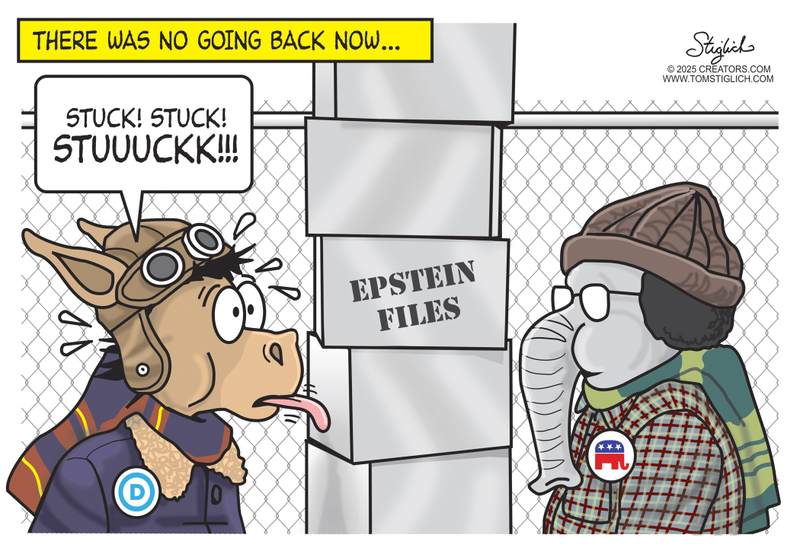
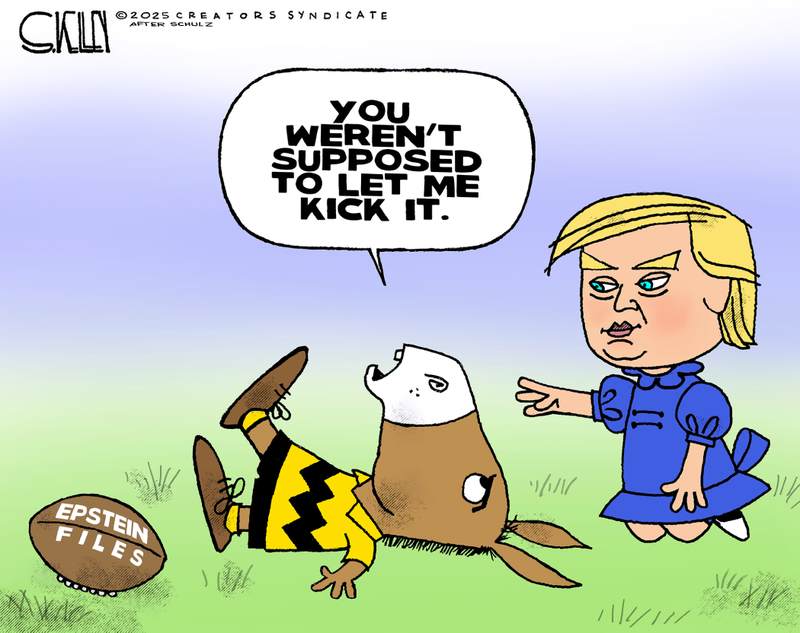
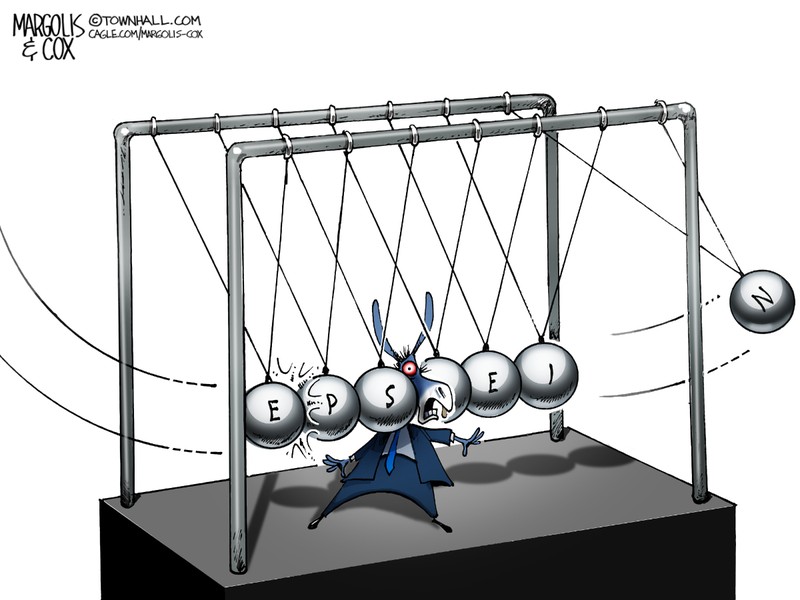

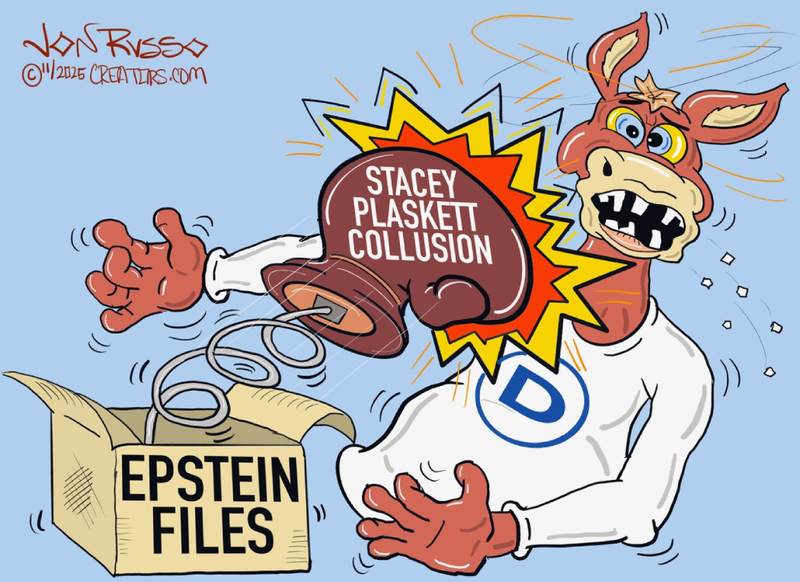
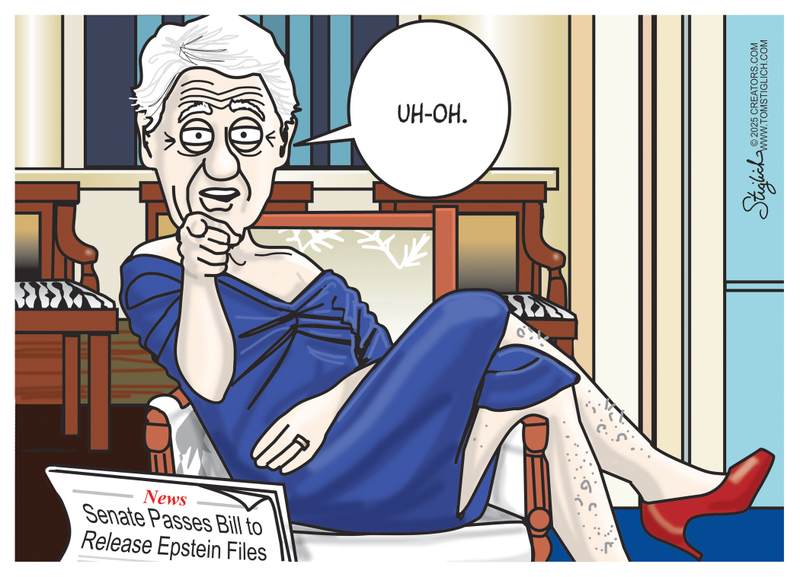



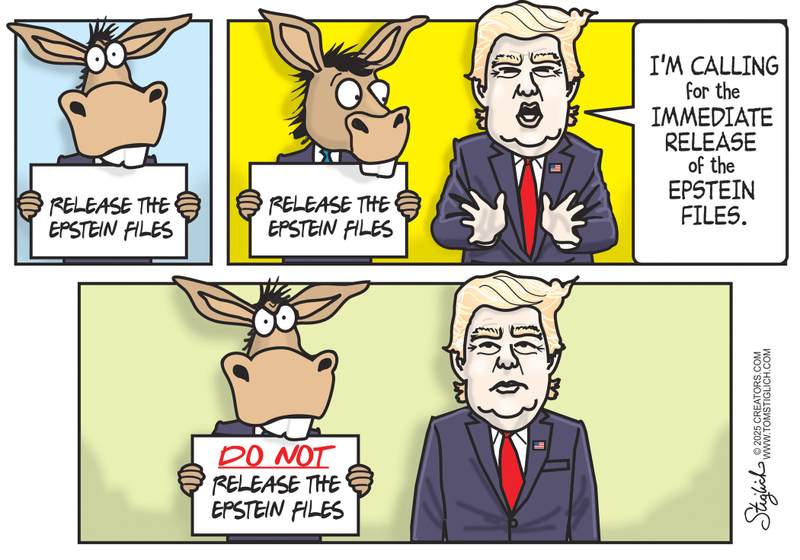





.png)